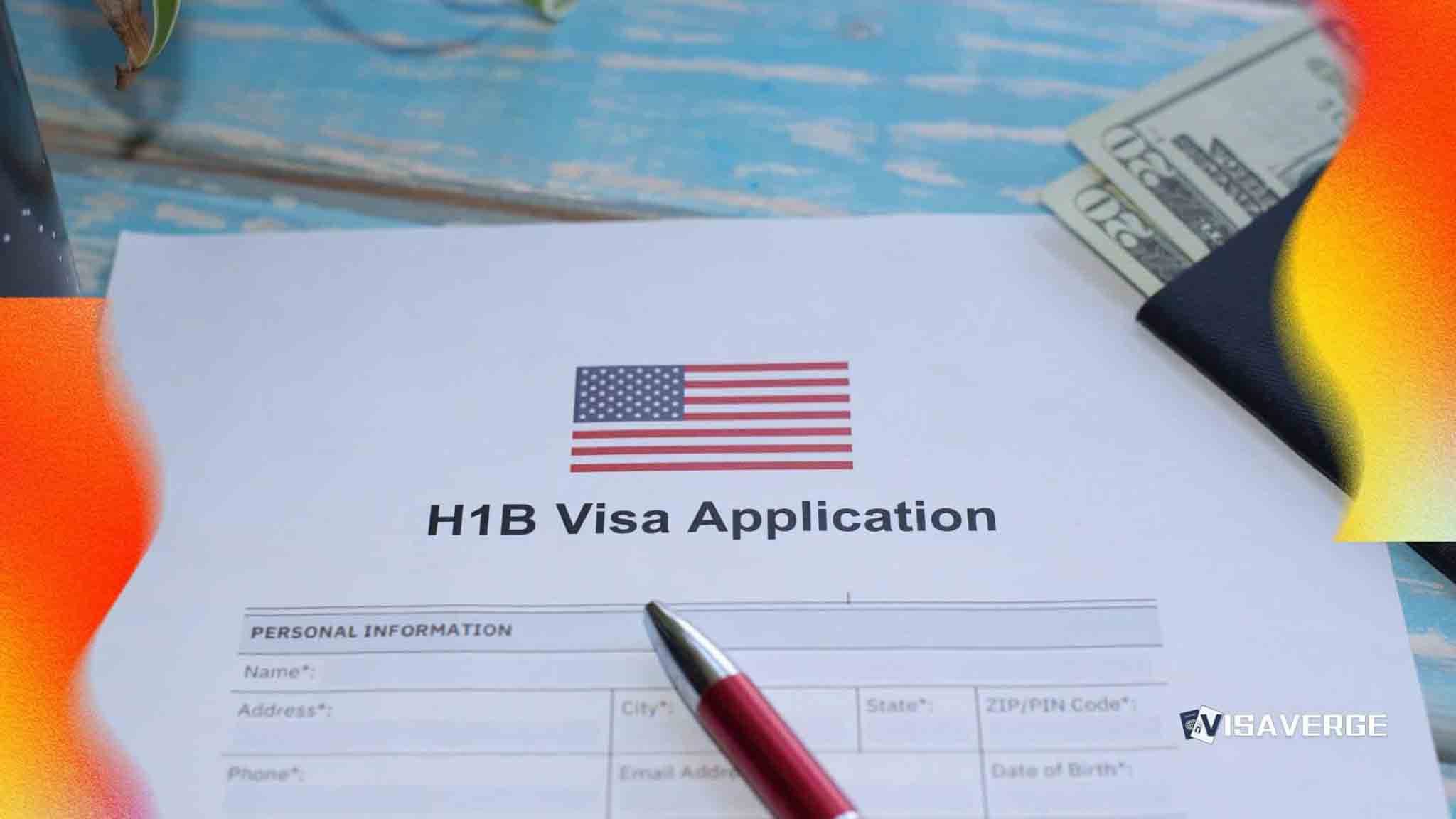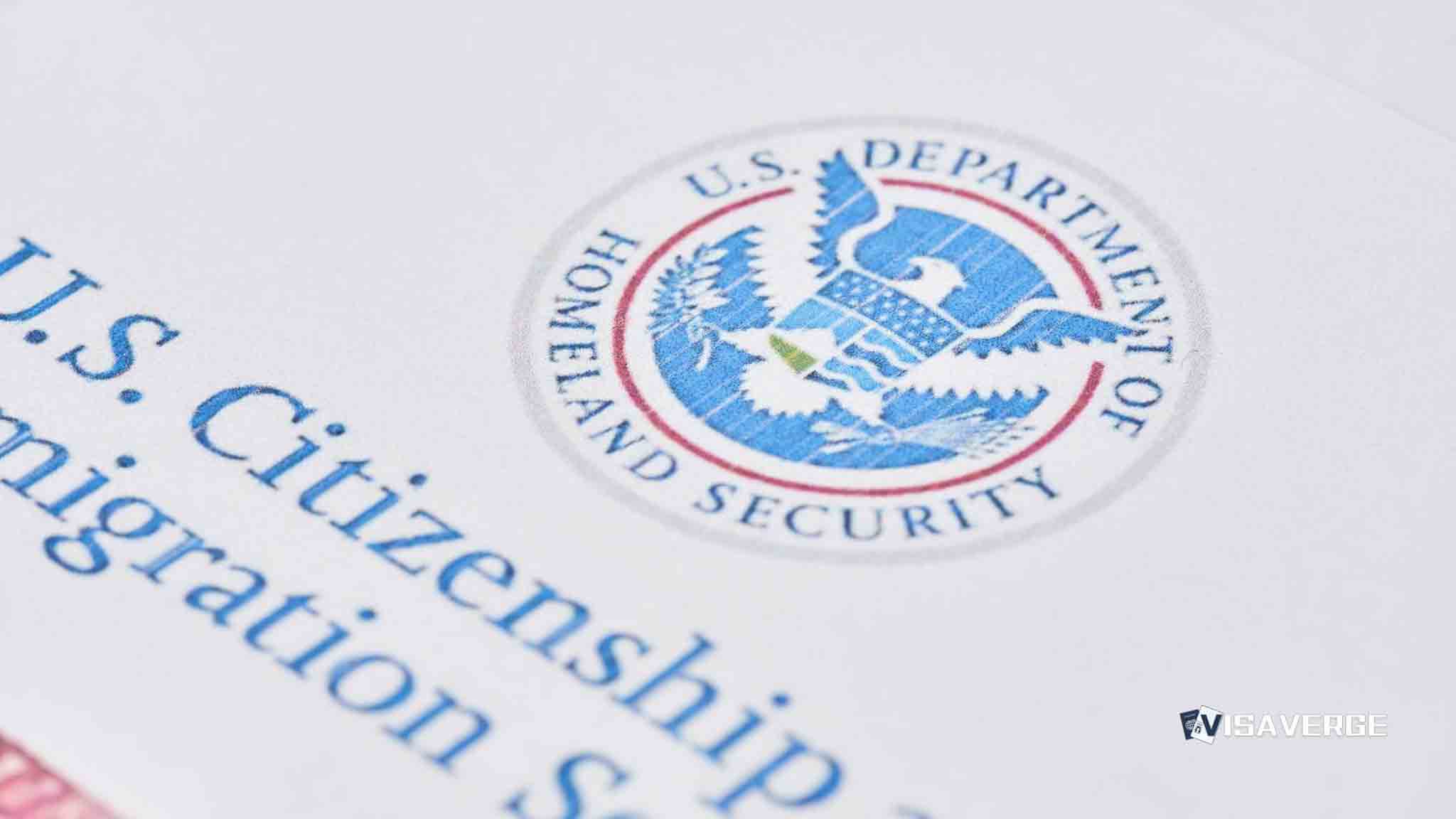Key Takeaways
• GOP bill bans and deports visa holders supporting Hamas and other terrorist groups.
• Bill expands to include public endorsement or social media support as deportable.
• Student visa interviews paused amid increased scrutiny of pro-Gaza protest participants.
A new GOP bill introduced in the United States 🇺🇸 Congress on June 11, 2025, is drawing national attention for its sweeping approach to immigration and national security. The “Terrorist Inadmissibility Codification Act,” led by Rep. August Pfluger (R-Texas), seeks to ban and deport visa holders who support Hamas or other groups the U.S. government labels as terrorist organizations. This move comes amid a reported rise in antisemitic violence and heated debates over pro-Gaza protests, especially on college campuses across the country.
This article explains what the bill proposes, why it matters, who could be affected, and what might happen next. It also looks at the broader context of U.S. immigration law, the reactions from different groups, and what visa holders and their families should know right now.

What Is the GOP Bill and Why Was It Introduced?
The “Terrorist Inadmissibility Codification Act” is a new piece of legislation introduced in the House of Representatives. Its main goal is to ban and deport any visa holders who support Hamas or other designated terrorist groups from staying in the United States 🇺🇸. The bill also covers groups like Hezbollah, al Qaeda, ISIS, and Palestine Islamic Jihad.
Who introduced the bill?
Rep. August Pfluger (R-Texas) is the lead sponsor. He said, “There is no place in America for foreign adversaries or terrorist sympathizers. As our nation faces a disturbing rise in antisemitic and illegal alien terror attacks, along with increasing pro-Hamas sentiment on our college campuses, we must take action to ensure our borders are secure from those wishing harm against Americans.”
Why now?
The bill comes after the October 7, 2023, Hamas attacks on Israel, which led to a wave of antisemitic violence in the United States 🇺🇸. Lawmakers say they want to prevent anyone who supports these groups from entering or staying in the country.
What Does the Bill Actually Do?
The GOP bill expands current immigration law in several important ways:
- Broader Ban: It would not only ban people who are members of or give material support to terrorist groups, but also anyone who “endorses or espouses” the activities of these groups. This means even public statements or social media posts could be used as evidence.
- Covers More Groups: The bill specifically names Hamas, Hezbollah, al Qaeda, ISIS, and Palestine Islamic Jihad.
- Applies to All Visa Holders: This includes students, workers, tourists, and others in the United States 🇺🇸 on temporary visas.
How is this different from current law?
The Immigration and Nationality Act already bars people who engage in terrorist activity or provide material support to terrorist groups. However, current enforcement usually requires clear evidence and is handled case by case. The new bill would make the rules much broader and easier to enforce, possibly affecting more people.
How Would the Bill Work? Step-by-Step Process
If the bill becomes law, here’s how it would likely work:
- Introduction in Congress: The bill is introduced by Rep. Pfluger and assigned to committees for review.
- Committee Review: Committees discuss, possibly amend, and vote on the bill.
- House Vote: If approved by committees, the full House of Representatives votes on it.
- Senate Review: If passed in the House, the bill moves to the Senate for similar steps.
- Presidential Signature: If both chambers pass the bill, it goes to the President for approval.
- Implementation: If signed into law, the Department of Homeland Security (DHS) and the State Department would update their rules and start enforcing the new provisions.
- Visa Processing Changes: The State Department could continue or expand its current pause on student visa interviews and adjust how it checks visa applicants.
For more details on how bills move through Congress, you can visit the official congress.gov website.
What’s Happening With Student Visas?
Pause on Interviews:
In late May 2025, the State Department paused new student visa interviews. This pause is part of a larger effort to restructure how the government checks the backgrounds of visa applicants.
Why the pause?
Reports say the Trump administration began revoking student visas for people involved in pro-Gaza protests. The government wants to make sure that no one who supports groups like Hamas can enter or stay in the United States 🇺🇸.
Who is affected?
International students, especially those from regions connected to the conflict or those who have participated in protests, may face delays or denials. The government has not released official numbers on how many visas have been revoked or how many people are affected.
Who Else Could Be Affected?
The bill targets a wide range of people:
- All Visa Holders: Anyone in the United States 🇺🇸 on a temporary visa could be affected if they are found to support Hamas or similar groups.
- Students: International students are under special scrutiny, especially those involved in campus protests.
- Workers and Tourists: People in the U.S. for work, business, or tourism could also be impacted if they are linked to these groups.
- Social Media Users: Public statements or posts online could be used as evidence of support, even if the person is not directly involved in any group activities.
How Is “Support” Defined?
One of the biggest questions is what counts as “support” for Hamas or other groups. The bill uses broad language, saying that anyone who “endorses or espouses” the activity of these groups could be banned or deported.
What does this mean in practice?
- Public Statements: Saying positive things about a group on social media or in public could be seen as support.
- Protests: Participating in certain protests might be used as evidence.
- Associations: Being part of organizations or groups that are seen as supporting Hamas could also be a problem.
Legal experts warn that this broad definition could lead to legal challenges, especially around free speech rights protected by the U.S. Constitution.
What Are the Main Arguments For and Against the Bill?
Supporters Say:
- National Security: The bill is needed to keep the country safe from people who might support or help terrorist groups.
- Clear Message: It sends a strong message that the United States 🇺🇸 will not tolerate support for terrorism.
- Responds to Recent Violence: Supporters point to the rise in antisemitic violence and say the bill is a necessary response.
Critics Say:
- Too Broad: The bill could punish people for their political beliefs or free speech, not just for real threats.
- Legal Problems: The broad language may not hold up in court and could be challenged as unconstitutional.
- Targets Innocent People: Some worry that students and activists could be unfairly targeted for peaceful protest or online posts.
Civil liberties groups and some immigration lawyers are especially concerned about the impact on free speech and the risk of overreach.
What Other Laws and Bills Are Related?
This is not the first time Congress has tried to address this issue. Other bills include:
- H.R.176 (No Immigration Benefits for Hamas Terrorists Act of 2025): Also pending in Congress, this bill would deny immigration benefits to anyone involved with Hamas.
- H.R.6679 (118th Congress): This earlier bill sought to create new grounds for denying entry or deporting people involved in the October 7, 2023, attacks or who are members of Hamas or Palestinian Islamic Jihad.
These bills show a trend toward stricter immigration enforcement in response to security concerns.
What Are the Practical Effects for Visa Holders?
If the GOP bill becomes law, the effects could be wide-ranging:
- Deportation Risk: Visa holders found to support Hamas or similar groups could be deported, even for statements made online.
- Entry Denials: People applying for visas could be denied entry based on their political views or associations.
- Delays and Uncertainty: The pause in student visa interviews and new vetting procedures could cause long delays for students and others trying to come to the United States 🇺🇸.
- Legal Battles: Those affected may have to fight their cases in immigration court, which can be expensive and stressful.
According to analysis by VisaVerge.com, the bill’s broad language could make it easier for the government to deny visas or deport people, but it also raises serious questions about fairness and free speech.
What Should Visa Holders and Applicants Do Now?
If you are a visa holder or planning to apply for a U.S. visa, here are some steps to consider:
- Be Careful Online: Understand that public statements, social media posts, and protest activity could be reviewed by immigration officials.
- Stay Informed: Follow updates from official sources like the U.S. Department of State for the latest on visa policies and interviews.
- Seek Legal Advice: If you are worried about your status or activities, talk to an immigration lawyer who can explain your rights and options.
- Document Everything: Keep records of your visa status, communications with officials, and any legal advice you receive.
What Happens Next? The Legislative Process and Future Outlook
The “Terrorist Inadmissibility Codification Act” is still in the early stages. Here’s what to expect:
- Congressional Debate: The bill will be discussed in committees and may be changed before any vote.
- Uncertain Passage: It is not clear if the bill will pass both the House and Senate, especially if there are concerns about free speech and legal challenges.
- Possible Amendments: Lawmakers may narrow the language or add protections for free speech.
- Continued Administrative Actions: The State Department is likely to keep reviewing and updating its vetting process for visas, especially for students.
If the bill becomes law, legal challenges are almost certain. Courts will have to decide if the new rules go too far in limiting free speech or targeting people based on their beliefs.
Broader Context: Immigration Law and Security
The United States 🇺🇸 has long used immigration law as a tool for national security. The Immigration and Nationality Act already bars people involved in terrorism from entering or staying in the country. However, enforcement has usually focused on clear evidence of direct involvement or support.
The new GOP bill reflects a shift toward broader, more preventive measures. This approach is controversial, especially when it comes to defining what counts as “support” for a group like Hamas.
Key Takeaways and Next Steps
- The GOP bill aims to ban and deport visa holders who support Hamas or other terrorist groups, using broad language that includes public statements and associations.
- The bill is still in the early stages and has not yet become law.
- Visa holders, especially students and activists, could face increased scrutiny, delays, or even deportation if the bill passes.
- Legal experts expect court challenges if the bill becomes law, especially around free speech rights.
- Stay informed by checking official government websites and, if needed, consult with an immigration lawyer.
For the most up-to-date information on U.S. visa policies, visit the U.S. Department of State’s visa page.
This situation is developing quickly, and the outcome will affect many people in the United States 🇺🇸 and around the world. By staying informed and understanding your rights, you can better prepare for any changes that may come from this or similar legislation.
Learn Today
Terrorist Inadmissibility Codification Act → A proposed GOP bill banning visa holders supporting Hamas or similar terrorist groups from the U.S.
Visa Holders → Individuals granted temporary permission to stay in the U.S. for study, work, or tourism.
Material Support → Providing resources, funding, or assistance to terrorist organizations or their activities.
Deportation → The legal removal of an individual from the U.S. due to immigration violations.
Pro-Gaza Protests → Public demonstrations supporting Gaza, sometimes linked to visa scrutiny under the bill.
This Article in a Nutshell
A new GOP bill aims to ban visa holders supporting terrorist groups like Hamas from the U.S. It broadens deportation grounds including social media endorsement. The bill affects all visa types and pauses student visa interviews, raising concerns about free speech and visa process delays for international applicants.
— By VisaVerge.com













